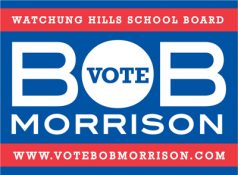WARREN TWP. – By learning to play the drums, Robert Morrison began a lifelong involvement with music in fourth grade. At the time, he did not envision the path ahead would lead him to become one of the nation’s top advocates for public school arts education.
In June, one aspect of that noteworthy career will end, as Morrison steps down as executive director of Arts Ed NJ. He helped found the non-profit arts in education advocacy group in 2006. At that time, the organization was known as the New Jersey Arts Education Partnership.
Morrison’s devotion to expanding arts education access will not end. He will delve more deeply into his work with Quadrant Research, the Warren Township-based arts education data analytics and research firm that he helped found in 2009.
Through music, Morrison found mentors at a young age that helped shape his life. One of his proudest career accomplishments has been to ensure today’s students have similar opportunities through Arts Ed NJ and other advocacy.
“They saw something I’m me, they invested in me,” Morrison said of the music and band instructors he had in his youth. “I wanted to pay it forward.” Arts advocacy, Morrison added, has allowed him to give back to other students on an even larger scale.
Perhaps the top accomplishment of Morrison and Arts Ed NJ occurred in 2019. That year, it was announced that the Garden State had become the first in the nation to provide universal access to arts education for all public school students. Nearly 1.1 million students were found to be actively participating.
Most area residents might better know Morrison, 60, from his service on the Watchung Hills Board of Education, where he has been a Warren Township representative since 2014. He is currently serving as board president.
Love of the arts is also ingrained in Morrison’s family members, His wife, Nora, is the longtime instrumental music teacher for the Watchung Borough Schools. Both of the couple’s two children have been involved with music as well.
Musical Mentors
Morrison’s interest in the drums versus another instrument was born out of practicality. In elementary school, he bought a two dollar pair of drumsticks from a local department store in his Pennsylvania hometown. “We didn’t have a lot, and drumsticks were pretty cheap,” he recalled.
As he wound his way through his school years, Morrison had a series of influential music instructors. Charles Blum gave him his start with weekly lessons in the music room of East Pikeland Elementary School in Phoenixville, Pa.
Bob Herr, his junior high band director, taught Morrison additional percussion instruments. In high school, band director Michael Solick and his assistant, John Villa, guided him. At the time, Morrison acknowledges, he was not a high-achieving student and “not on a good path.”
Solick, in particular, showed Morrison “tough love” and allowed him to recognize his gift of musical talent.
After college, Morrison was recruited and hired by Pearl, the company known for its percussion instruments. Eventually, he worked his way up to marketing director.
Ensuing years saw Morrison work for the National Association of Music Merchants (NAMM) and the music station VH1. While at NAMM, he began his involvement with public school arts advocacy.
The film “Mr. Holland’s Opus” came to play an important role in those efforts. The movie, which stars actor Richard Dreyfuss, portrays an influential high school music teacher who is beloved by his students.
On Jan. 9, 1996, a coalition of music groups that included NAMM, staged premieres of the film in 49 locations across the country. The “by invitation only” events were attended by more than 25,000 interested citizens, music teachers, school administrators, celebrities and other advocates.
The film helped illustrate and publicize the fight that was being waged in local districts to stave off arts programs from funding cuts. Dreyfuss, and the film’s composer Michael Kamen, supported the cause, according to Morrison.
Dreyfuss was nominated for both an Oscar and Golden Globe Award for his role as music teacher Glenn Holland. The success of the film brought attention to the value of arts and music education. But other factors such as economic downturns and emphasis on needs-tested programs created periodic threats to their continued funding.
Milestones
With Morrison’s involvement, Arts Ed NJ has had numerous public school arts advocacy milestones since its founding 16 years ago. It compiled the first statewide census of arts education in the country to hold districts accountable for its offering. New Jersey became the first state to report data on arts education.
The Garden State also became the first to include arts education measures on school report cards and first to pass legislation mandating grade-weighting of arts courses.
When New Jersey became the first state to provide universal public school access to arts education, Morrison was joined by Gov. Phil Murphy at a Paramus High School event to celebrate.
“We’ve gone from having an arts program (in New Jersey) that was middle-of-the-road to leading the nation in many areas,” Morrison said.
Morrison notes that studies have shown skills needed to read music and play an instrument translate to other subjects as well. Arts classes aren’t taught to create artists, rather, “We teach the arts to create great people,” he said.
